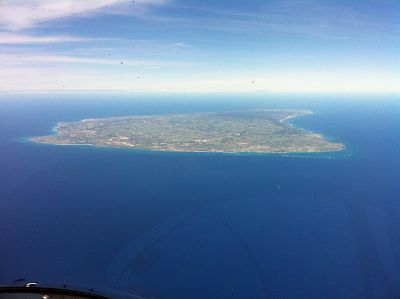Being #1 – Our Right, Our Responsibility
Jan 21, 2015
Story

On January 29, 2012 the headlines blasted the move to number one on the UK charts of Barbadian, born and bred, band Cover Drive with their song “Twilight.” The group joins in this measure of success with another Barbadian pop star, Rihanna, who is known the world over. Yet these examples of success are showcased in local media among countless other articles highlighting the challenges facing this small island state. Dr. DeLisle Worrel, Governor of the Central Bank of Barbados, spoke openly about the increasing national debt, higher unemployment rates, and rising inflation. Barbados depends heavily on international markets for imports, as well as on income generation through industries like tourism and financial services.
The success of these musicians speaks to the potential of Barbadians and the benefits of creating opportunities for individuals to develop and utilize their talents across sectors. The pursuit of economic independence, therefore, becomes much more than a RIGHT, it is a personal RESPONSIBILITY. Through the use of new information communication technologies (ICTs) for entrepreneurs to innovate and market their services abroad, and the movement of people and goods to more countries across the world, Barbados, in turn, can survive and grow.
Interestingly, the Barbados Entrepreneurship Foundation, a charity formed in 2010, envisions Barbados as “the #1 entrepreneurial hub in the world by 2020.” It is an ambitious endeavour built around five core pillars – finance, government policy, education and talent, mentorship, and business facilitation. The foundation recognizes that the most important resource on the island is its people. Rightly so, given that Barbados is an island of 166 square miles with a population of approximately 280,000, and no significant natural resources barring sun, sea, and sand. Creating entrepreneurs and innovators across sectors is key to competing within local and international markets.
The Barbados Government’s investment in the provision of free health and education is admirable. However, considering that it is people who trade, it is not enough. As an article in the Barbados Advocate (July 2010) suggests, the sectors in Barbados are not as productive as other markets abroad. The Mauritius Strategy for Small Island Developing States (SIDS) highlights the importance of the effective use of ICTs for increased productivity and international competitiveness. In essence, a small business or budding entrepreneur could utilize new technologies to streamline procedures and increase business output. Plus, in the case of engaging in foreign markets, the Internet offers many opportunities to facilitate trade.
The economic crises has severely affected the economies of the traditional trading partners, like Europe and the US, marking a decline in formally lucrative industries, including tourism, relative to previous years. Yet, the Standard Chartered Annual Report in 2012 speaks of growth in Asia and Africa. The growth in these markets presents new opportunities for entrepreneurs if they were brave enough to engage. The fact that Barbadian businessman Sir Kyffin Simpson is one of the major suppliers of BMWs in China is a further testimony that there is much to gain in engaging with countries in the East.
Many will want to place the responsibility for the nation’s growth in the hands of the Government. After all, it is the Government that creates policies and passes legislation that will help protect and empower citizens. Lest we forget, votes are power and Government is not able to do it alone. Furthermore, in the absence of strong leaders and visionaries, it is the people that will band together and implement strategies like crowd/angel funding and mentorship. It is the people that will assist with social programs for actualizing the economic empowerment of all citizens at home and abroad.
The future of Barbados, therefore, requires that individuals collectively realize their potential by seeking, offering, and taking advantage of opportunities available to them. It is by using information communication technologies, innovative and entrepreneurial ventures, and a focus on new, often emerging markets for export of goods and services that the country will survive. In 2012 and beyond, citizens of Barbados must be seen, and see themselves, as THE solution for the nation’s development.
This article is part of a writing assignment for Voices of Our Future a program of World Pulse that provides rigorous new media and citizen journalism training for grassroots women leaders. World Pulse lifts and unites the voices of women from some of the most unheard regions of the world.




